From no-deal Brexit to plastic, obesity strategy to business rates, where do politicians stand on the crucial issues affecting grocery?
From arguments over who can best “get Brexit done” to the threat of “rat hair and maggots” in the supply chain, the general election looks set to be one of the most bitter of all time and sees the food and drink industry more than ever in the debate. As the parties draw up their manifestos, what do industry leaders want to see in them?
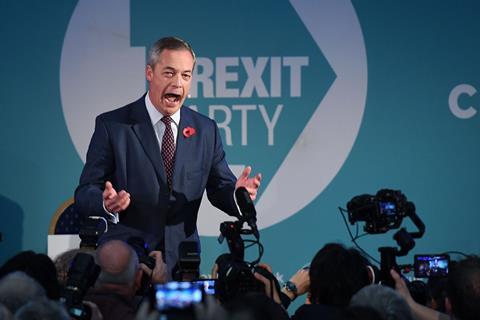
Brexit: avoid no-deal while ensuring new deal is not a disaster
The industry has teetered on the edge of the precipice three times already.
This week a survey by the FDF found dozens of companies reported spending more than £100,000 on preparations including stockpiling.
Scenes of queues at the ports and empty shelves at Christmas have been avoided. But industry leaders warn that as the threat of a no-deal is diminishing, another deadline that could have almost as disastrous consequences for the future of frictionless trade is approaching.
Whoever wins the election has until December 2020 to secure a trade deal with the EU, or until July to decide if it will ask for an extension, something Boris Johnson has ruled out.
Food and drink leaders urgently want that extension, despite the uncertainty of further delay.
Johnson removed key chunks of Theresa May’s withdrawal agreement to try to pave the way for future trade deals outside the EU, but the industry is demanding reassurances that the UK will retain alignment with the EU on a tide of regulation, including such areas as food safety, hygiene, pesticides, animal welfare and labelling.
The FDF warns of a “serious risk to competitiveness” and “huge new costs” and disruption if this doesn’t happen.
“We thought Theresa May’s 21-month transition period was optimistic,” says one supplier. “A year is just ridiculous.”
Yet calls for continued alignment with the EU are likely to go down like a lead balloon on Brexiteer doorsteps.
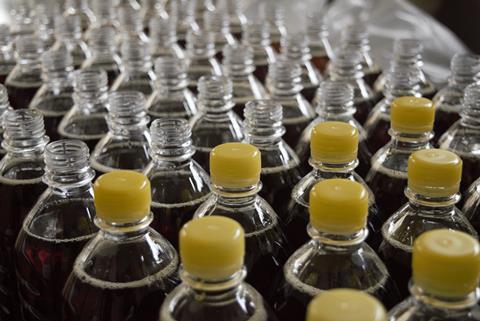
Environment: joined-up policies on plastic
If one issue is keeping retailers and suppliers awake at night as much as the no-deal threat, it’s the environment, with plastic public enemy number one.
The big fear is that when it comes to government policy, the industry is being charged with the huge cost of removing plastic at the same time as being beaten around the head with taxation new (and old).
“Our biggest concern is to make sure government policy is driven by evidence and not a knee-jerk reaction to public opinion every time there is an episode of Blue Planet,” says one source.
The BRC says plans for taxes on single-use plastic, outlined in the environment bill in the Queen’s Speech, are “disjointed and damaging, coming on top of the huge cost of extended producer responsibilities”.
Meanwhile, plans for a bottle deposit return scheme are up to four years behind proposals in Scotland, leading to fears of cross-border chaos.
However, campaigners are not going to accept anything but a full-on war on plastic.
“For too long recycling has been touted as a viable solution to plastic pollution,” says Sian Sutherland, founder of A Plastic Planet. “It’s clear our attempts to recycle our way out of the problem have failed catastrophically.”
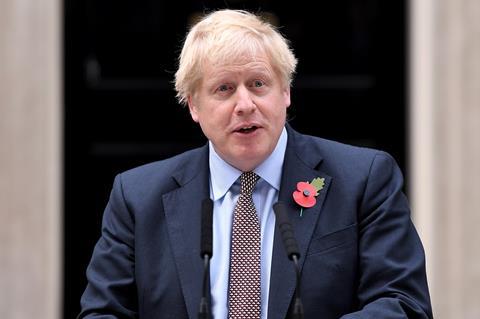
Obesity: more strategic leadership
The government’s Childhood Obesity Strategy risks going off the rails, with neither the industry nor health campaigners happy about progress.
The latest milestone report from PHE in September showed the voluntary reduction programme for sugar stood virtually no chance of hitting its target of a 20% cut by next year, while programmes for calories and saturated fats have yet to get off the ground.
Industry leaders argue they are “overwhelmed” with 120 different targets in the voluntary reduction programme alone, but campaigners say they are dragging their feet.
Meanwhile, there is the thorny issue of the sugar tax and whether it should be extended beyond soft drinks.
Suppliers are calling on Boris Johnson to stand firm on his opposition to what he has described as “stealth sin taxes”. But in the first 100 days of his leadership there has been stony silence - and this was the man who introduced just such a tax as London mayor.
Labour says the obesity strategy is travelling “at a snail’s pace” and is set to call for the expansion of the sugar tax and accelerated moves on plans for store promotions and HFSS ad crackdowns.
“What we want more than anything is more strategic vision,” says one industry source. “We need the government intentions to have credibility and purpose rather than 120 different targets and PHE spending millions on a report from Kantar that nobody reads.”
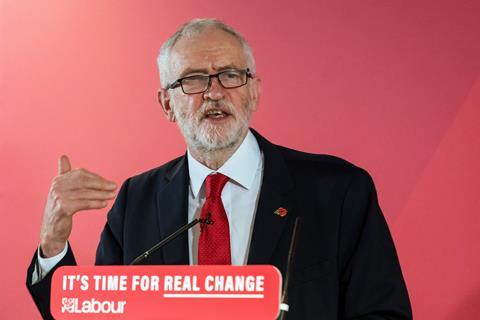
High street: find a credible replacement for business rates
Everyone from Mary Portas to Dave Lewis has highlighted the crippling impact of business rates on the industry, over the course of more than a decade. But can a new government produce a credible solution?
It’s not as if the death of the high street isn’t a big political issue. With ongoing campaigns running in several redtops, it is a potential vote winner.
But the complexities of pricing rates and coping with the exodus to online shopping has thus far defeated politicians, and the boarded-up shops and CVAs have kept coming.
A report last week by the Treasury Select Committee provided new hope that MPs might finally have had enough, calling on the government to undertake an urgent review of alternatives, including the option of a hybrid tax combining elements of a property tax and a sales tax, though it said there was little evidence in favour of Lewis’ idea of an ‘Amazon tax’.
Significantly the committee described previous measures, such as the government’s Future High Streets Fund, as a “sticking plaster”, despite Johnson having raised the fund, aimed at helping struggling towns, to £1bn in August.
Labour leader Corbyn, meanwhile, is promising “radical” action that would include giving authorities power to force landlords to re-open empty shops. But can Labour, or anyone, make them viable?
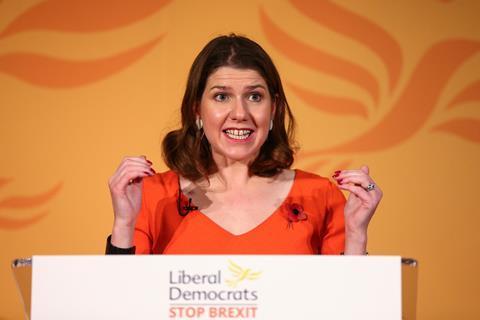
Food to be truly at heart of policies without issues becoming toxic
The challenge used to be to try to find any mention of food in political speeches or manifestos in the run-up to elections, but thanks to Brexit it seems guaranteed to be in the front line.
Jeremy Corbyn’s speech warning of a “Thatcherism on steroids” post-Brexit trade deal, which would see food from the US laced with “rat hair and maggots” as part of a “sell-out” trade deal with Donald Trump, was a taste of things to come.
The election also comes hot on the heels of protests against the meat industry, with the rise of veganism and climate concern becoming highly toxic issues for the industry.
But will the campaigns result in more bluster than concrete plans for food policies?
As well as huge questions over what Brexit means for UK retailers, suppliers and farmers, the government is drawing up its first food strategy in 75 years, with a report due to be published by Leon founder Henry Dimbleby next year.
The industry is also hoping the next government will accelerate the work of the Food Sector Council, so far a huge damp squib. Billed as a game-changer when it was announced two years ago, it has been completely overshadowed by Brexit and a much-awaited industry deal has so far failed to materialise.








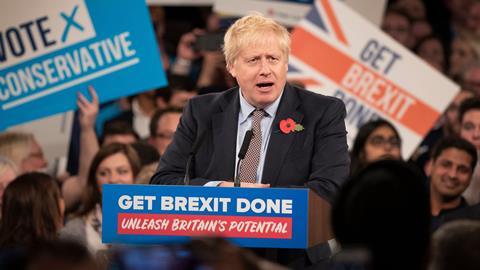







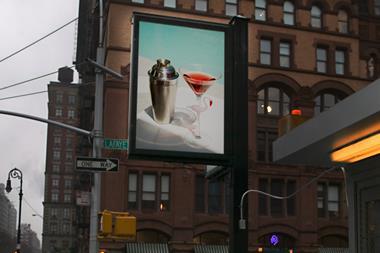








No comments yet